
About Oaks (home) | Map | Plant List | Cultivar/Species Information | Sources | Other Campus Oaks of Interest
Latin Name: Quercus prinoides
Common Name: Dwarf Chinquapin Oak (syn. Dwarf Chinkapin Oak)
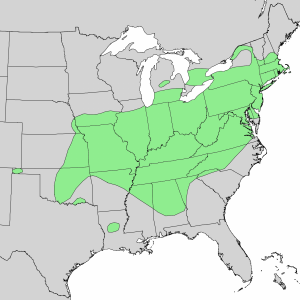
Cultivar:
Family: Fagaceae
Division: White
Native Range: New Hampshire south to Florida panhandle—west of the piedmont; then west to SE Nebraska, Kansas, and Oklahoma.
Introduced:
Sun/Shade: sun
Height: 5' - 12' × same
Form: rhizomatous spreading shrub or small tree
Zones: 4 - 8
Flower: Catkins. Wind-pollinated. Male flowers in pendulous catkins 1–2½" long, narrowly cylindrical in shape. Female flowers solitary or in clusters of 2-3 near the tips of young shoots; inconspicuous.
Leaves: Leathery, obovate, 1½ - 5½", narrow, 3 -8 pairs of undulate—shallow rounded—lobes, shiny dark green above, light green with shight pubescence below.
Fall Color: can turn a good yellow-orange
Fruit: Acorn. Light brown. 1–2 per stalk, thin cup with gray pubescent scales covering 1/3 of nut
Buds: Chestnut brown, blunt tips, broadly-rounded; scales have pubescence.
Bark: Thin, gray; furrowed and ridged
Wildlife: Larval host plant for many moths and skippers. Acorns eaten by numerous birds species, especially woodpeckers and upland game birds like quail and turkey. Also provides nesting habitat and cover for songbirds. Mammals, from black bear to mice, eat the acorns and deer browse twigs and new growth.
For detailed information about insect associations see Illinois Wildflower's Quercus prinoides page.
Disease issues:
Cultural Uses:
Folklore:
Notes: National Champion in Richardson County, NE, near Salem. Prefers rocky, sandy soils.
Where to find Quercus prinoides in Maxwell Arboretum: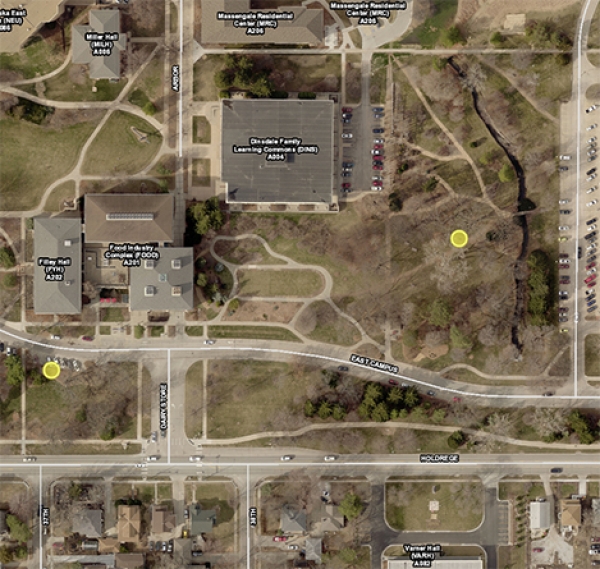
←Previous Oak → NEXT OAK
All images Maxwell Arboretum unless otherwise noted 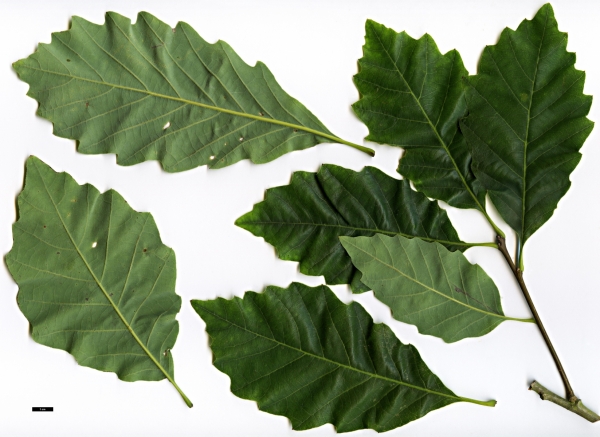
©Jan De Langhe, Ghent University Botanical Garden, 2010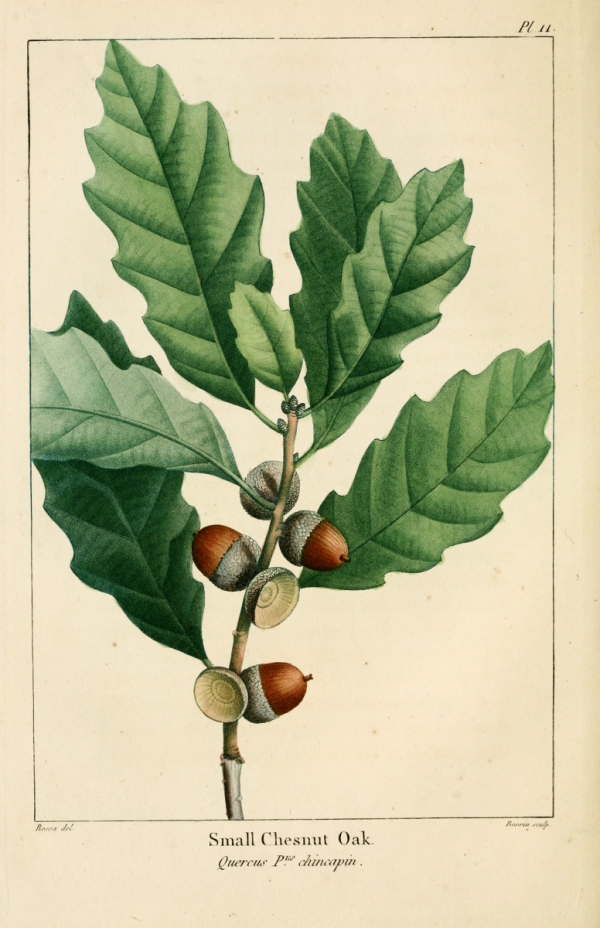
The North American Sylva, or A description of the forest trees of the United States, Canada and Nova Scotia,
François André Michaux. Pancrace Bessa (illustrator)
↑ New foliage and catkins ↓
Foliage and finished male catkins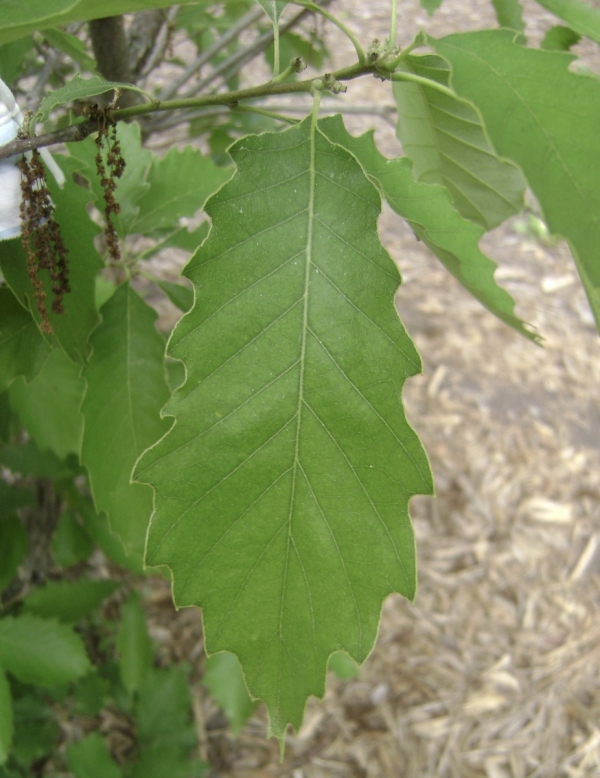
Leaf with acorns just beginning to form in the axils
Acorns forming
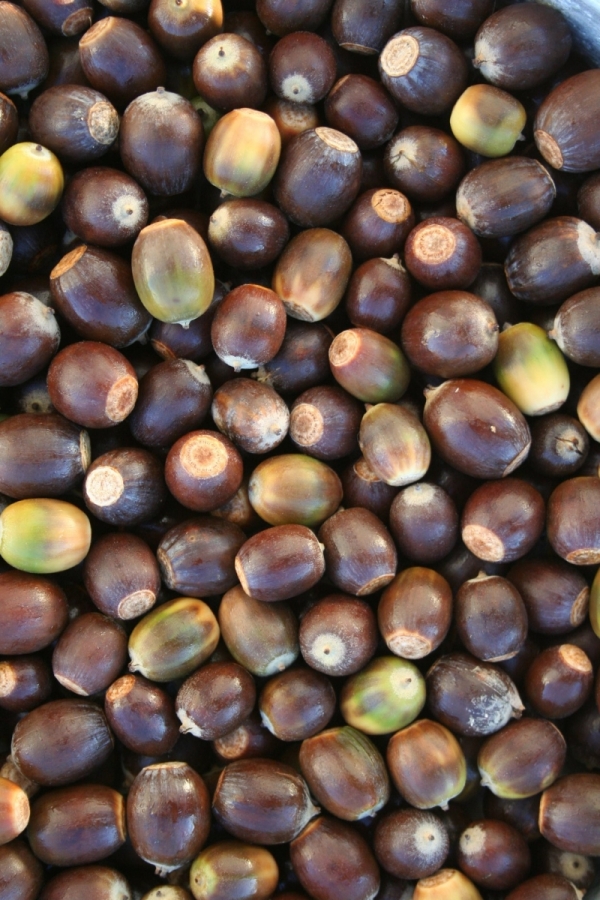
Capless acorns
Nebraska Statewide Arboretum